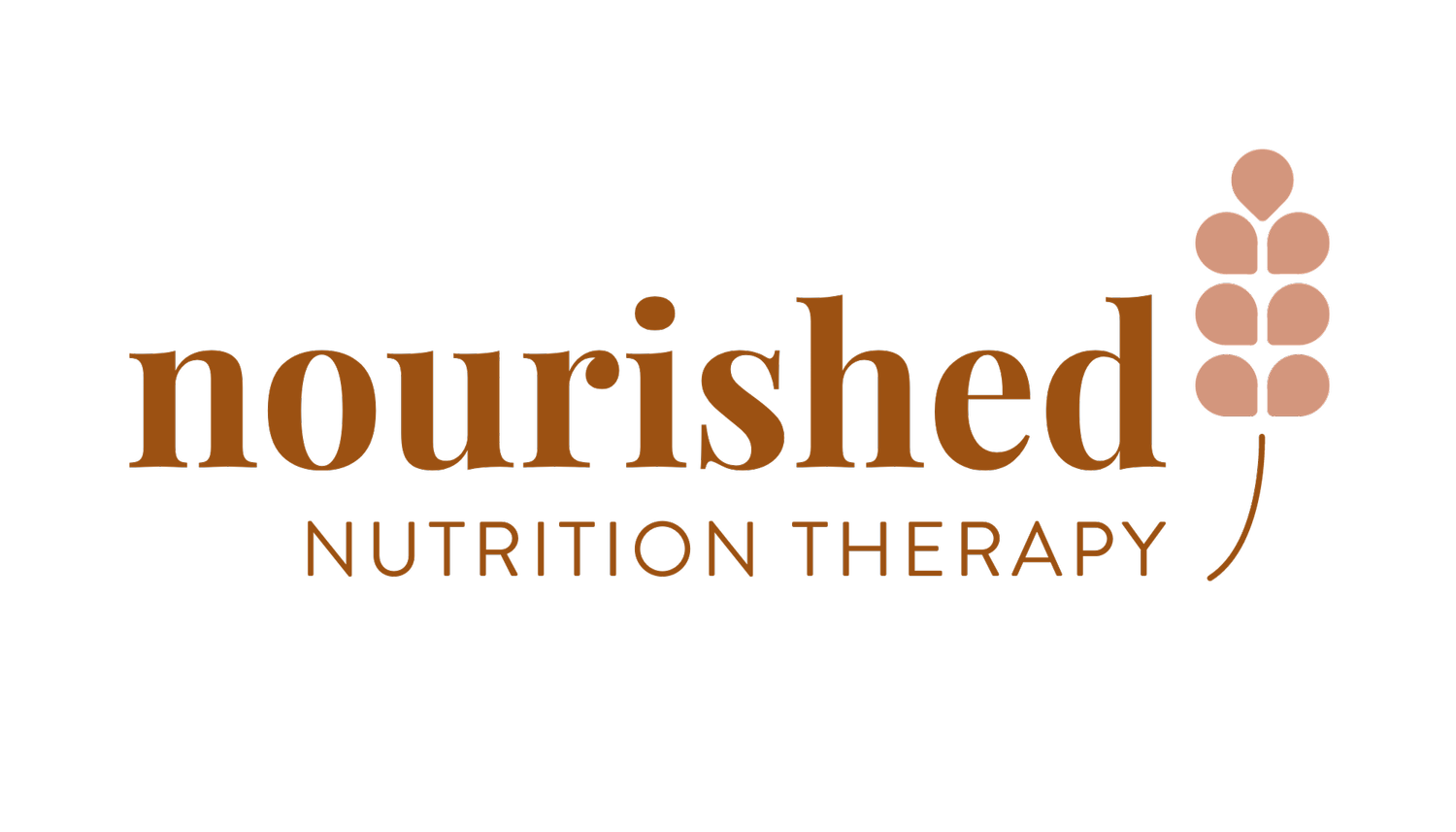What is Intuitive Eating & How To Get Started?
If you’re tired of starting a new quick fix diet every few months, hoping that this will be THE DIET to help you lose those extra 10 or 20 pounds, finally eat healthier for good, and not feel so crazy around food – you’re not alone. Research shows that 45 million Americans attempt to go on diets every year, and only 5 percent keep the weight off. That’s right, 95% of dieters regain the weight they lost and then some within 3-5 years.
Unfortunately, instead of realizing that restrictive diets don’t work, the majority of these people (as well as the $60 billion diet/weight loss industry) blame the dieter, not the diet. If this sounds like you, then you’ve likely experienced guilt and shame after not sticking to a diet, blamed your lack of willpower, and vowed to “be better” next time you start a diet. This is yo-yo dieting at its finest and once you’re on the diet rollercoaster, it sometimes seems impossible to stop the ride.
One solution that has provided thousands of people with freedom from chronic dieting, helped them make peace with food and their bodies, and rediscover the pleasures of eating is called Intuitive Eating. Intuitive Eating is a framework that teaches people to reject the diet mentality, learn to listen to their body’s hunger and fullness cues, and practice mindfulness at mealtimes.
Here are some key Intuitive Eating principles to get you started on your journey towards food freedom!
1) Don’t skip meals! Try to eat a balanced meal every 3-4 hours. This is the amount of time it takes the body to digest and metabolize a meal and alert you that it is time to eat again. If you skip a meal in an attempt to “save calories,” it will likely backfire because a hungry body will release an extra dose of ghrelin, also known as the “hunger hormone.” Hours later, you will suddenly feel like you need to eat everything in the refrigerator – and you eat more than you would have if you didn’t skip the earlier meal. This is the body’s protective mechanism to keep you from starving yourself, and it’s tough to fight your biology!
2) Give yourself unconditional permission to eat ALL foods. That's right – this means that nothing is off limits. When you eat intuitively, you are allowed to eat cookies, pizza, and ice cream. For people who have dieted their entire lives, this concept seems terrifying for several reasons. First, diet culture has repeatedly told us that certain foods are “bad” and that we should feel ashamed when we eat them – especially if we are overweight. Second, we believe that willpower and abstinence from these “bad” foods is the best way to lose weight. However, if this worked, then diets wouldn’t have a 95% failure rate. This doesn’t mean that you indulge in a junk food free-for-all – it means that if you are really craving a cookie, you should enjoy a cookie and not feel guilty about it. If you satisfy your cravings, you will be less likely to overeat at mealtimes or binge on “bad” foods when your willpower gives out.
3) Practice mindfulness at mealtimes. It’s difficult to honor your body’s hunger, fullness, and cravings cues if you are constantly distracted at mealtimes. If you’re used to multi-tasking at every meal (scrolling through Instagram during breakfast, eating lunch at your desk while catching up on emails, eating dinner in front of the TV), mindfulness or the state of being present and aware of what you’re doing goes out the window. Try eating at least one meal per day distraction free. This means no cell phone, no laptop, no books, and no television. This practice will force you to focus on the enjoyment of your food, how good each bite tastes, and how your body feels when it’s comfortably full – not mindlessly stuffed and uncomfortably bloated, which is often what happens when we eat while distracted.
4) Ditch the diet mentality and trust your body. Your body is an incredible machine! Think of everything your body does to keep you alive – all of your organ systems operate in unison, even while you are sleeping, to keep you going. Your body knows what nutrients it needs and how often it needs those nutrients – and it tries to alert you of those needs by providing you with clues called cravings. For example, after you exercise, you will likely be craving carbohydrates (ie: pasta) because your body burns your body’s carbohydrate supply first during physical activity. Instead of following some prescribed diet that doesn’t take your unique lifestyle factors or biology into perspective, learn to trust your body and listen to what it’s telling you. This involves honoring not only cravings, but your body’s hunger and fullness cues. In other words, eat when you are hungry, stop when you are full.
5) Cope with emotions without using food. Food should not be your preferred coping mechanism for when you are bored, sad, anxious, lonely, angry, or stressed. We all experience hardships but using food to make us feel better doesn’t actually fix the problem – it simply comforts us in the short term, and may set us up for a vicious cycle of emotional eating where we will default to a muffin to dull our pain. It’s important to learn to cope without resorting to food and to find appropriate outlets for your emotions. Try reading your favorite magazine, meditating, calling a friend, taking a walk, or enjoying a bath when you had a hard day instead of raiding the pantry. This will also help you separate emotional hunger from biological hunger – and will help on your journey to becoming an Intuitive Eater!

